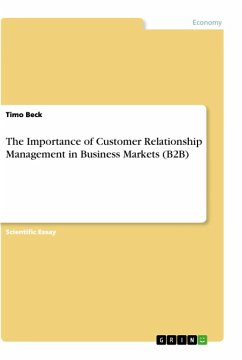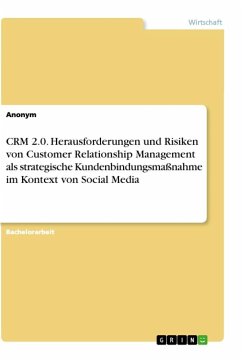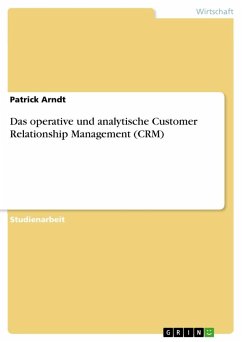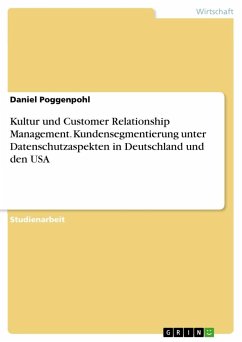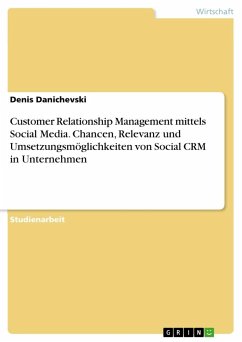Essay from the year 2010 in the subject Business economics - Customer Relationship Management, CRM, grade: A, University of St Andrews, language: English, abstract: An increased competitive situation on the basis of similar products, scarce resources, advancements in technology and changes in customer behaviour are forcing companies to consider a sustained and efficient structure of the provision of their services over and above a strong customer orientation. Customer relationship management (CRM), as a part of strategic marketing, can be seen as the emerging management paradigm, with which companies seek to respond to these changing market conditions.Through the adoption of a CRM system, companies are able to collect and evaluate specific knowledge about their customers in a systematic way, hence primarily improving customer service and customer loyalty. Until recently, companies ignored the importance of this, which lead to a loss of customers and thus a decrease in profitability. Beyond that, the fact that companies neglect their customers is oftentimes intensified by a lack of appropriate equipment, tools or project management methods. Estimates by some market observers even state that nearly 70 - 80% of all CRM projects fail or do not attain the intended target.Nevertheless, CRM can be an effective and profitable cross-functional management tool for attaining a lasting exchange with customers across all their points of contact and access with a personalised treatment of the most beneficial customers in order to ascertain customer retention and the effectiveness of marketing initiatives. The adoption of an effective customer relationship management within the field of business-to-business (B2B) marketing is therefore essential, as companies have to be exceedingly responsive to individual customer preferences, equally requiring a differentiated sales approach in order to raise customer profitability.The objective of this paper is to provide a clear overview of the importance of customer relationship management. The coursework is divided into five chapters. Initially, the general theoretic foundations of customer relationship management are explained in chapter two. Thereafter, the specific advantages of adopting a CRM approach for business organisations will be outlined in chapter three. Chapter four describes a framework of CRM explaining the ideas and techniques within a business marketing context. Finally, in a retrospective analysis of the paper, the research findings will be analysed and an outlook of the future development of CRM in business marketing will be given.
Hinweis: Dieser Artikel kann nur an eine deutsche Lieferadresse ausgeliefert werden.
Hinweis: Dieser Artikel kann nur an eine deutsche Lieferadresse ausgeliefert werden.


